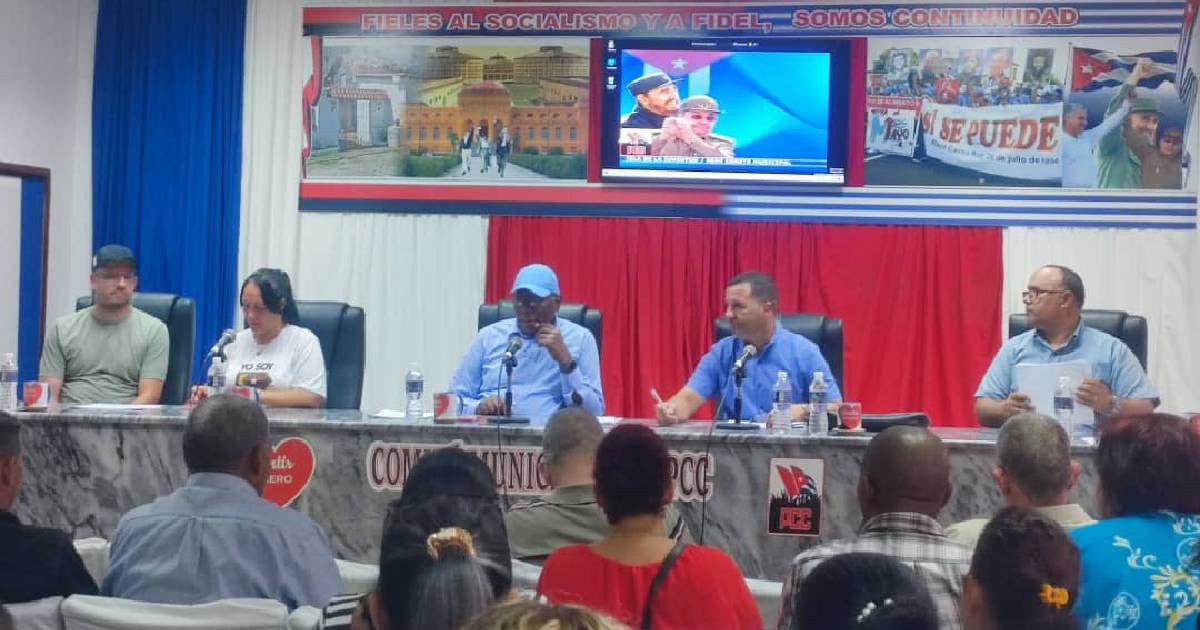During a recent official tour of Isla de la Juventud, Cuban Vice President Salvador Valdés Mesa reiterated the importance of achieving "food self-sufficiency and sovereignty." However, these words appear as mere institutional rhetoric in a nation where food production is exceedingly limited, import reliance is overwhelming, and Cuban families struggle daily to secure the most basic necessities.
While the government espouses self-sufficiency, the stark reality is that the majority of available food is imported and sold at exorbitant prices, often in foreign currencies, while state salaries are dispensed in Cuban pesos, which hold virtually no purchasing power. Discussing food sovereignty under such conditions is not just ironic; it is an affront to the Cuban populace.
According to Radio Caribe, Valdés Mesa was briefed on the implementation of seven international collaboration projects, such as the Energy Transition Program in Cocodrilo, backed by the UNDP and funded by Italy. Although this initiative aims at emission reduction and job creation, the primary investment comes from abroad, with minimal impact on actual food accessibility.
Additional initiatives supported by the European Union were also highlighted, including the Agroecological Transition program, which seeks to establish value chains in animal protein (poultry, pigs, fish) and promote renewable energy on local farms. Moreover, projects for rehabilitating contaminated soils, improving water supply, and theoretical agroecological models were mentioned, which seldom translate into tangible food for the average citizen.
Despite reports indicating that the spring campaign exceeded its plan by 110% with 3,486 hectares planted, many production bases continue to fall short of their targets. The so-called "rice program" aims to plant 601 hectares, a marginal figure compared to the nation's needs. This is occurring amidst an energy crisis that hampers food production, refrigeration, and distribution.
Growing Discontent on Isla de la Juventud
Meanwhile, on the island—and throughout the country—markets remain empty, prices in MLC, dollars, or other foreign currencies are unaffordable, and queues for chicken, eggs, or bread have become a commonplace sight. Talking about sovereignty without ensuring even breakfast for millions of Cubans is not strategic planning; it is empty propaganda.
On June 18th, an unusual event unfolded in Santa Fe, Isla de la Juventud, as several signs opposing leader Miguel Díaz-Canel and the Cuban communist regime surfaced, marking a rare occurrence in this locality. The graffiti appeared on visible structures of the "Florecita de Azahar" children's circle and a bus stop in front of this educational institution, as reported and photographed by CiberCuba.
Additionally, a long-standing "myth" was debunked: Isla de la Juventud is no longer exempt from daily blackouts. The lack of power generation and breakdowns have worsened the situation, spurring an unprecedented wave of public discontent that extends beyond mere complaints about the power outages.
Understanding Cuba's Food Sovereignty Challenges
What is the main challenge facing Cuba's food sovereignty?
Cuba's primary challenge in achieving food sovereignty is its heavy reliance on food imports, coupled with limited domestic production and an economic structure that fails to support local agriculture.
How do international projects impact Cuba's food security?
International projects contribute to various areas like energy transition and agroecological practices, but their direct impact on food security is limited, as these initiatives often depend heavily on external funding and face implementation challenges.
